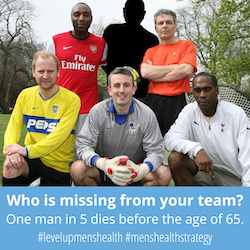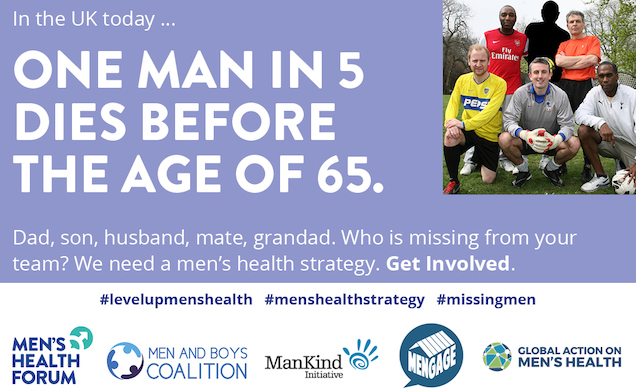The Forum has, like so many working in women’s and men’s health, been looking forward to the publication of the government’s women’s health strategy for a long time.
Sadly, today’s 127 page document is pretty thin gruel which is unlikely to be transformational for women. We wish it were otherwise. Funding is barely mentioned beyond £10 million for breast screening which is, of course, something the NHS already does. You’d call this ‘addressing underfunding’ rather than, as the strategy likes to, ‘resetting the dial’.
More research is promised. A very good thing, obviously. And all doctors will be ‘trained to provide the best care to women by introducing mandatory specific teaching and assessment on women’s health’. Again, a very fine idea. And good for men too since existing equalities legislation means it will be discriminatory for medical schools to address the needs of one gender without addressing those of the other.
Gender health gaps
What would be amusing - were it not so worrying to all who work in women’s and men’s health - is the rewriting of the history of the NHS. The strategy claims that ‘historically, the health and care system has been designed by men, for men’. Even the most basic of statistics highlight this for the nonsense it is. The latest GP patient survey shows that 66% of women have seen their GP in the last month compared to 54% of men. Since GPs are the gatekeepers to everything the NHS has to offer, it doesn’t sound much like a system designed for men, does it?
Noting that ‘women live on average for longer than men but spend more of their life in poor health’, the strategy promises to ‘close the gender health gap’. But which one? That of life-expectancy or that of healthy life-expectancy. The answer should surely be both. Don’t we want people to live long lives in which they enjoy good health for as long as possible? The idea that it’s fine for you to pop off prematurely but an outrage to have a disability or long-term condition in your later years would strike most as bizarre.
It would be more accurate to say that the NHS was a system designed when both what we could do through health interventions and what we wanted to do were very different from today and that there has been insufficient patient involvement of any sort - male and female - from the outset. We need an NHS that meets today’s needs and recognises its prime purpose is the health of those who use it regardless of their gender, race or any other characteristic you care to mention. That NHS would be one that has a (genuine) health strategy for women and a health strategy for men.
Jim Pollard,
Editor


